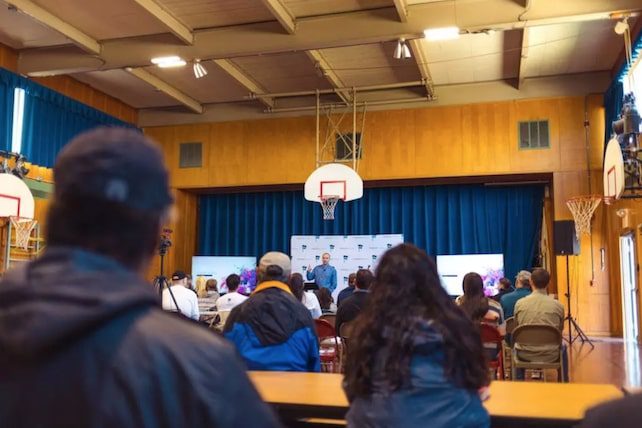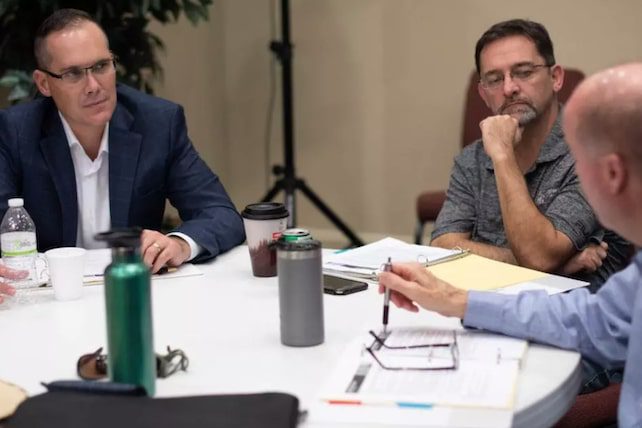When the COVID-19 pandemic spread throughout the world, it forced massive changes in how people lived their lives throughout 2020 and 2021. For Christians, this included changes in how the Church lived in community with one another, as well as how it served and ministered to the contexts in which God has placed it.
So in the Summer of 2021, I, along with mission practitioners from around the world, gathered virtually for the Lausanne Diaspora Summit, to understand the impact of the pandemic on missional engagement around the world. Sam George and Bulus Galadima, who both serve as Catalysts for diaspora for the Lausanne Movement, edited the insights from that meeting into a new book called Pandemic, Migration, and Mission: Global Reflections for Christian Witness. Sam George is also serves with me at the Billy Graham Center at Wheaton College as the Director of the Global Diaspora Institute.
The following is a four-piece series containing excerpts from contributing chapter called “Impact of the Pandemic on Missions in North America.” In this piece I discuss some of the immediate effects experienced by churches at the onset of the pandemic.
Make sure to read Part 2, Part 3, and Part 4 in this series, as well.
The coronavirus marks a new era in the life of the earth, humankind, and Christianity. For good or ill, the age of COVID-19 is changing the portrait of our future. For the rest of our lives, we will see the year 2020 as a watershed year in our nation and our world. The shadows of death, disease, isolation, material poverty (medicines), division, and conspiracy will darken the legacy of this age. The remarkable scientific and technological advances over the past couple of years cannot ease or erase the loss of human life nor the aftermath of the coronavirus on individuals and society. Nations across the globe struggle to access vaccines or catch up to the vaccination rates of more powerful nations because of socio-economic and political alliances. At the same time, we see countries coming together fracturing under this pressure. Although books can be filled with the effects of the pandemic on various nations, this chapter will address the complex effects of the coronavirus on the Canadian and American Evangelical churches.
Some Immediate Effects of COVID-19
It’s worth noting the direct and immediate impact of the COVID-19 pandemic. First, the impact of the lockdown is immeasurable, including its impact on church attendance. In the United States, some heavily populated areas remained locked down for most of 2020, but other areas quickly opened back up after only a couple of months. Canada has largely remained locked down or heavily restricted. I served as an interim pastor of a church in New York City that had no in-person services for an entire year.
The Moody Church, where I previously served as interim teaching pastor, shutdown in March of 2020 and didn’t open again until Easter of 2021. I know of churches that opened back up to full capacity only four months after the beginning of COVID-19. This isn’t the first time the Church has outlived and ministered through a pandemic—but this is the first time in recorded history that a global lockdown has disproportionately impacted gathering venues, such as movie theaters, concert halls, and churches. We’ve never had a year in which Easter services were canceled for most churches in most nations across the globe. So this is a unique experience in the history of the world.
Before COVID-19, most churches had in-person services, however, COVID-19 lockdown forced many of them to offer their services online. I preached at Moody Church on Easter of 2020 to a camera in an empty room: 3750 seats, empty wooden seats in the heart of downtown Chicago in a city where people were even unsure if they were allowed to drive due to Chicago’s regulations.
Many churches only began broadcasting their sermons during the lockdown in order to minister to their congregations. But now that we are approaching a time where churches can gather without fear of the coronavirus, how do we convince portions of our congregations that now prefer virtual services to come back through our doors on Sunday morning? And how can we help churches that have adopted a more proactive use of technology to leverage that well for the gospel?
As churches are returning to in-person services around the world, the new normal of church life is now a hybrid experience. The North American church adapted to its pandemic needs by cultivating a virtual church where its members could worship, hear the Word preached, and commune with the church as they did before—but many Canadians and Americans have decided that they prefer the virtual experience regardless of the virus.
Regardless of the length of our lockdown, this period of isolation has shaped us. As a result, a second effect is a culture-wide feeling of fatigue that can negatively affect church gatherings and fellowship. Self-isolation restrictions, working remotely, and the rapid collapse of social opportunities took a toll on many North Americans’ willingness to be with or around non-family members and our endurance in social settings.
Our good and necessary precautions to protect the vulnerable from the pandemic, along with the ever-present reality of death due to the virus, made North Americans to become more focused on intimate settings and relationships. The hesitancy to gather in large groups or unfamiliar spaces certainly adds to the increasing popularity of online church experiences where families can worship together at home. In other circumstances, some North Americans have simply decided that they prefer “attending” church in their pajamas as they enjoy a lazy Sunday morning.
We now see a return to large gatherings from NFL and college football games to indoor arenas filling again for concerts and sporting events. But they continue to be affected by the pandemic as players, coaches, students, and teachers were impacted adversely. Schools and colleges across the continent have returned to in-person classes. Stores and malls are back. But the pandemic fatigue and disruptions continue for the most.
Read Part 2 of this series here.



























